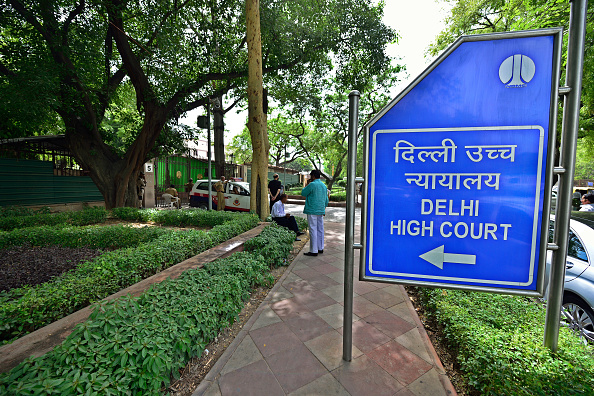The Delhi High Court has deferred its decision on the city government’s challenge against a single judge bench order that had restrained coercive actions against six Public Works Department (PWD) officials. These officials were issued show cause notices for alleged “gross violation” of rules during the renovation of Chief Minister Arvind Kejriwal’s official residence.
The appeal, lodged by the Directorate of Vigilance and Special Secretary (Vigilance) Y.V.V.J. Rajasekhar, seeks the annulment of a September 15 interim order issued by a single judge of the high court. The interim order prohibited any authority from taking coercive measures against the PWD officials until October 12.
A division bench composed of Chief Justice Satish Chandra Sharma and Justice Sanjeev Narula heard the appeal and has reserved its judgment.
The single judge had issued the interim order due to concerns over the city authorities’ failure to exercise restraint and their contradictory actions, despite an assurance from their counsel that no coercive measures would be taken against the officials.
Previously, senior advocate Rahul Mehra and Delhi government standing counsel Santosh Kumar Tripathi had given an undertaking to the single judge that no coercive action would be initiated against the petitioner officials.
In their appeal, the Directorate of Vigilance, represented by advocates Yoginder Handoo and Mananjay Mishra, argued that the order was issued without recognizing that the alleged assurances lacked the necessary authority.
Senior advocate Kirti Uppal, representing the appellants, informed the division bench about an office memorandum from the Delhi government’s Department of Law and Justice, stating that all legal representatives must strictly align their written and verbal submissions with the written instructions approved by the Administrative Secretary of the concerned Department. Uppal asserted that no statements could be made without written instructions from the competent authority.
In contrast, Mehra contended that they had received proper instructions from the PWD minister to assist the court. He claimed that the minister had provided written instructions to defend the case in the high court and state that no coercive action would be taken against the petitioner officials.
Previously, the single judge had issued a notice and requested a response from the Delhi government through the Directorate of Vigilance, Special Secretary (Vigilance), and the PWD regarding the primary petition challenging the show cause notices.
The Directorate of Vigilance had issued show cause notices to six PWD officials, including the chief engineers and other PWD officials, regarding alleged rule violations during the renovation of Kejriwal’s official residence. The notices required them to explain their actions.
In their petition filed through senior advocate Mohit Mathur, the six officials sought the annulment of the show cause notices issued on June 19 by the Special Secretary (Vigilance), claiming that they were issued by the top officer “without jurisdiction and competence, with premeditation and with a closed mind, in complete abuse of the process of law.”
They argued that the notices were the result of a political dispute between the Lieutenant Governor of Delhi and the ruling party in the National Capital Territory of Delhi, in which they were made “scapegoats.”
The PWD officials asserted in their petition that they had not violated any rules, statutes, or office orders, and the work performed on the official residence was within the scope of their official duties and was conducted under vigilant supervision.
Their petition stated, “The petitioner(s) followed the instructions of the minister of PWD, GNCTD (Government of the National Capital Territory of Delhi) and have consistently performed his duties under his vigilant supervision. It will not be out of place to emphasise that the petitioner all along acted in good faith, with no default, lapse or negligence on his part.”
The show cause notices, however, alleged that the old structure was demolished without a survey report, and no building plan was sanctioned for the new construction undertaken by the PWD. The notices called upon the PWD officials to explain their actions “as all such acts have been done by them in gross violation of general financial rules, CPWD manual and CVC guidelines.”
(With PTI inputs)





